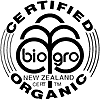Future CAP must invest insustainable food systems
Communication for the CAP towards 2020 needs ambitious follow-up
Brussels, 18/11/2010
– “The European Commission Communication The CAP towards 2020 recognises the special quality organic farm products offer to consumers, and stresses the need to further strengthen the organic
quality scheme as a policy tool,” welcomes Christopher Stopes, President of the IFOAM EU Group1. “If implemented in an ambitious way, this will be an asset for the future of the CAP, as organic
farming2 does not only provide consumers with high-quality food, but is also a comprehensive approach to deliver solutions for the challenges the Commission has so clearly lined out, including
climate change, biodiversity loss, depletion of natural resources such as soil, water and nutrients, while also promoting enhanced animal welfare standards.”
“We stress the need for ambitious implementation of the objectives lined out in the new CAP by targeting all support towards these objectives, by finally mainstreaming sustainability in all CAP
measures and by guaranteeing consistency between these objectives in all measures,” adds Thomas Fertl, Vice-President of the IFOAM EU Group. “We welcome the fact that the Commission emphasises the
need for investments to lift both economic and environmental performance. This needs to be transformed into the legal requirement to measure all future CAP payments against the sustainability
objective. Organic farming is an investment in long-term food security as it enhances soil quality, and it is an engine for rural economies and a pioneer of sustainable food systems; it should
therefore be prioritised in all CAP axes and measures3.“
“Full targeting of CAP payments towards the objectives also implies further budget shifts towards the targeted measures in the 2nd pillar – we miss a clear commitment to this point in the
Communication”, underlines Dorota Metera, Board member IFOAM EU Group. “Whereas the need for innovation is emphasised in the Commission document, we must make sure that we do not invest in
simplistic approaches, but seriously invest in innovative and comprehensive systems. Organic farming is such a system; it fosters comprehensive approaches to innovation4. To improve the
sustainability of the performance of food production systems in Europe, investments in ecological innovation as well as in knowledge transfer and training are necessary. Advisory services should be
promoted by the CAP throughout all Member States, including services delivering advice in particular for organic farming, and should contribute to shape agriculture to meet the sustainability
challenges.”
More information:
IFOAM EU Group, phone + 32-2-280 12 23, Fax: +32-2-735 73 81,
info@ifoam-eu.org, www.ifoam-eu.org
NOTES:
(1) The IFOAM EU Group represents more than 300 member organisations of IFOAM (International Federation of Organic Agriculture Movements) in the EU-27, the EU accession countries and EFTA. Member
organisations include: consumer, farmer and processor associations; research, education and advisory organisations; certification bodies and commercial organic companies.
(2) Organic farming is a role model of well balanced provision of commodity and public goods output (Source: Niggli 2010 and IFOAM EU Group factsheets -
http://www.ifoam-eu.org/positions/factsheets/index.php):
• Biodiversity: 30 % higher species diversity and 50 % greater abundance of fauna; similar results for flora.
• Climate change mitigation potential: Increased Soil Organic Matter or Corg-contents, ranging from 10 to 60 %; no use of synthetic N fertiliser
• Improved biological properties of soils: ranging from 40 to 120 %.
• Increased soil aggregate stability.
• Increased water holding capacity, higher water content in soil.
• Improved infiltration rate of water.
• 35 to 65 % less nitrogen leaches from arable fields into deeper soil zones.
• 96 % less kg pesticides applied per hectare
• Organic holdings tend to diversify into value-added activities, with farmers branching out into on-site processing of agricultural products and direct marketing.
(3) IFOAM EU Group position on the new CAP:
“CAP post 2013 - smart change or business as usual”, Position Paper of the IFOAM EU Group, 2010
Proposal for a new EU Common Agricultural Policy, Common position paper Birdlife, EEB, EFNCP, WWF and IFOAM EU Group, 2009
IFOAM EU Alliances:
The Agricultural and Rural Convention (ARC) process aims to give civil society a strong voice and to prepare a powerful common message for a new European agricultural and rural policy. The ARC
complements and enhances the “Your Ideas Matter” initiative launched by the European Commission on 12 April 2010. www.arc2020.eu
(4) Organic farming and innovation: www.tporganics.eu
















